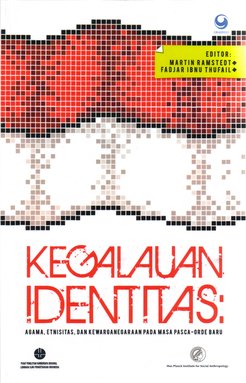Kegalauan Identitas: Agama, Etnisitas, dan Kewarganegaraan Pada Masa Pasca-Orde Baru

AutorIn
Martin Ramstedt and Fadjar Ibnu Thufail (eds.)
Verlag
Jakarta: Grasindo
Jahr der Veröffentlichung
2011
ISBN
978-979-081-432-5
OPAC
Abstract
Since the demise of Suharto's "New Order" regime and the beginning of the so-called "Reformation Era" in 1998, "decentralization" has become the key concept for the reordering of Indonesia. Indonesian society is characterized by a plethora of socio-cultural identities (religious, ethnic, and otherwise). It hence does not come as a surprise that the current decentralization process has not only entailed a reform of the country's governance structure. It has also transformed the way of how State and citizens relate to each other. This book seeks to understand the ensuing anxiety about identity which has manifested in various conflicts between different identity groups struggling to secure their place and say in the reordering of the country. The individual chapters highlight the dispute about identity among the Minangkabau people in West Sumatra, identity politics in Bali, religious conflicts in Papua, the vicious clashes between Muslims and Christians in Ambon, religious peacemaking in Minahasa, the politicization of "Chinese-ness" after Suharto, and the issue of collective intellectual property rights.
